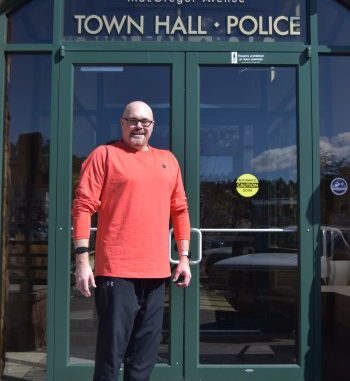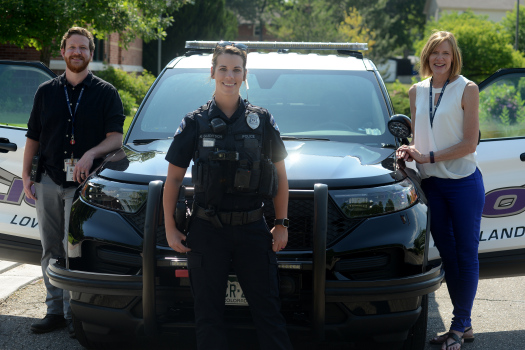

A mental health Co-responder can help respond to calls in which a mental or behavioral health issue is involved in hopes of helping funnel people to the resources they need instead of just sending them into the criminal justice system and continuing the cycle.
SummitStone Health Partners Co-responder Ryan Hale feels his background prepared him for the domestic violence cases, suicide threats, and illegal drug cases he responds to in Estes Park.
“Our co-responder program has saved our officers many hours they would have spent dealing with a person with mental health issues or in crisis. This program puts members of our community in touch with a mental health professional when they are needed,” said Lt. Rick Life of the Estes Park Police Department.
SummitStone’s Co-Responder program has been in Loveland since 2016. It has been a valuable resource for the Loveland Police Department to help build community trust and ease the strain on law enforcement.
As sweeping protests against police brutality in the wake of George Floyd’s death have led to a national conversation about policing, many communities are discussing the possibility of having additional resources that would repond with or instead of law enforcement in certain situations.

Two of SummitStone Health Partners clinicians are embedded in the Loveland Police Department and respond to calls andrs to help people who are in crisis and help avoid unnecessary use of emergency services and menand holds.
They work seven days a week. Between December 2019 and May 2020 they made a total of 1,000 visits.
The pair receives referrals from police officers out in the field,, and they also listen to radio traffic to determine calls that they should respond to. Depending on the situation,, officers either remain at the scene with the clinician or leave to respond to another call. In contrast, the clinician stays with the person to provide more in-depth assistance.
In Estes park, police arrive on a scene first to determine whether a law has been broken or if an arrest needs to be made. By having mental health professionals there, however, there are more options.
Many people believe mental health co-responders will be much more common in communities throughout the United States.
The Loveland co-responder program is one of 26 co-responder programs in 23 counties in Colorado. The concept is fairly new but it’s growing in popularity. The first national co-responder conference was held last year.
For more information on the Co-Repsonder program visit summitstonehealth.org.

Support Northern Colorado Journalism
Show your support for North Forty News by helping us produce more content. It's a kind and simple gesture that will help us continue to bring more content to you.
BONUS - Donors get a link in their receipt to sign up for our once-per-week instant text messaging alert. Get your e-copy of North Forty News the moment it is released!
Click to Donate
